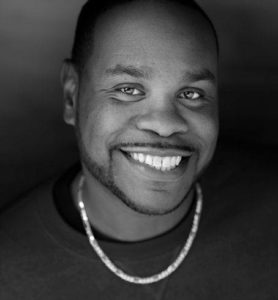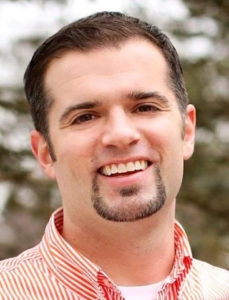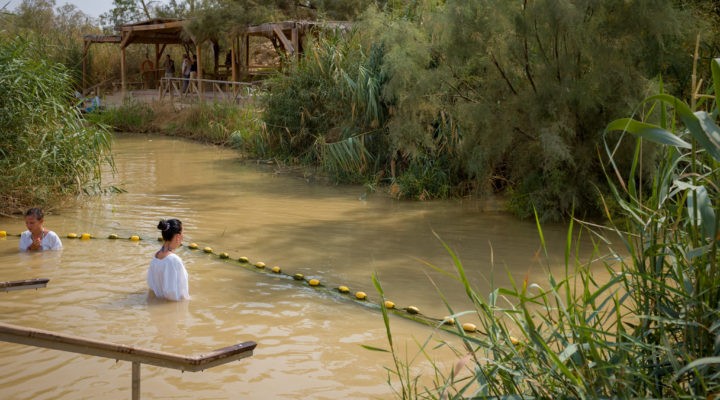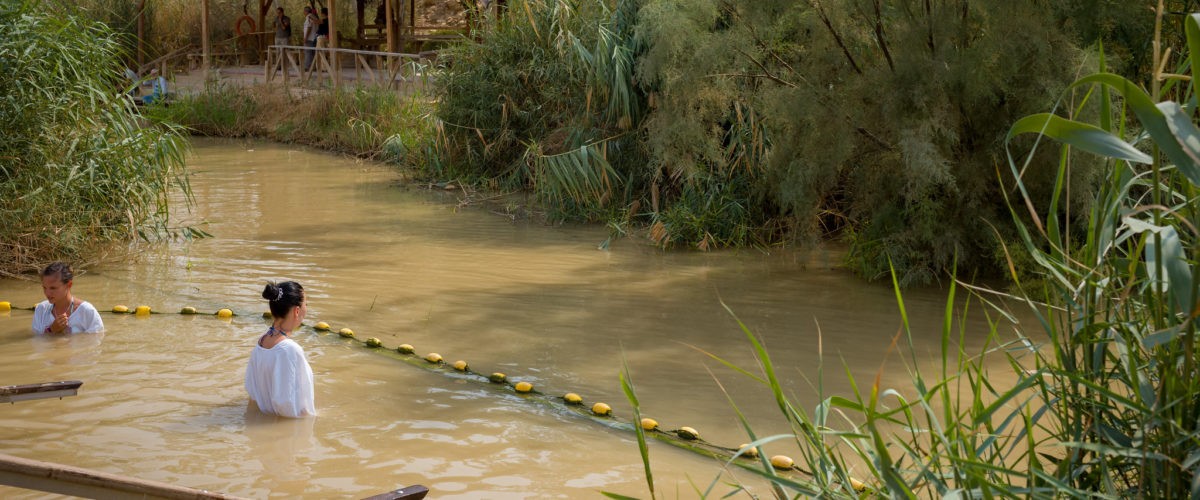An American hip-hop artist’s rebaptism in the Jordan River last month sparked conversations ranging in nature from mean-spirited to theologically reflective.

Lecrae performing in 2017. (Photo/The Come Up Show/Creative Commons)
“Can’t be baptized in the Jordan river and make the same old music. This new album is gonna be special,” rapper Lecrae said in a Sept. 19 tweet in which he also shared a video of the experience.
Some responded with praise. But others said rebaptism, even in the Jordan, is religiously unnecessary. Some labeled it a publicity stunt to sell music.
The entertainer was unruffled, responding to naysayers with some theology of his own: “1. it’s a Mikvah,” referencing a Jewish ritual bath. “2. Jesus was God already and still was baptized. 3. Celebrate the heart vs criticizing the information.”
Looking for connection, fellowship
Lecrae’s moment in the sacred river sparked conversations beyond social media. Some interpret it as a symbol of the religious and spiritual independence of younger Americans. It’s also raised questions about baptism and rebaptism in modern Christianity – especially when conducted in such a public manner.
Yet others see in the reaction a hypocritical judgment of a celebrity’s faith, and dismiss the notion that there’s anything wrong with sharing a baptism or rebaptism so publicly.
“All baptisms are supposed to be public events. That’s the point of doing it. That’s what baptism is,” said Jonathan Brooks, the pastor of Chicago’s Canaan Community Church and a hip-hop performer whose handle is Pastah J.

Jonathan Brooks
The idea is for the world to see that something important is happening and for the individual to embrace that before others. Baptisms through his church are held along Chicago’s Lakefront for just that reason, he said.
Brooks is long-time friends with Lecrae, who performed years ago at Canaan Community Church. The artist’s public display of faith, Brooks said, was nothing unusual for him or other hip-hop stars.
“Some of my favorite artists have been very public about their faith.”
Lecrae always has been open about his and remains so to this day. But he drew criticism in recent years as some of his lyrics became less overtly Christian and began to include more secular content.
Brooks said the artist is solid in his religious convictions.
“I think Lecrae is showing that someone who has distanced himself from that established evangelical church can still be connected with Jesus and say, ‘this important to me,’” Brooks said.
Experts in faith and culture say the buzz around the rapper’s Jordan River experience taps into much larger social and religious undercurrents influencing American religion today.
“It’s indicative of the place people are spiritually and that many young people are choosing,” said Alan Rudnick, a Baptist minister, author and speaker on matters of faith and culture.

Alan Rudnick
Young people are increasingly drawing on eclectic spiritual sources to create individualized journeys of faith, Rudnick said. Lecrae’s reference to the Jewish mikvah ritual echoed that kind of blending.
“It’s common now for people to make an amalgamation of Jewish and Christian beliefs.”
But that’s not necessarily bad news for churches, Rudnick added. The public interest in the performer’s rebaptism reflects the attraction younger generations have in spiritual things. Churches may be able to tap into that attraction.
“They are looking for a connection to other people and to God and that’s an opportunity for us to say we want to partner with you,” Rudnick said.
‘Still connected to the ancient faith’
But even church-going Christians tend to take inspiration from a variety of outside sources, said Brett Younger, the senior minister at Plymouth Church in Brooklyn, New York.
“They are looking to a lot of different places for the experience of grace,” he said.
The upside is that these believers are not letting institutions define how God comes to them. The downside is it’s an individualistic path that doesn’t recognize the importance of community in experiencing grace.

Brett Younger
It’s where the rebaptism issue intersects the discussion, he said.
Younger said he was in Israel with 15 other ministers in 2010 when five of them decided to be rebaptized in the Jordan. It fell to Younger to conduct the ritual.
“So, I baptized five Methodist and Episcopalian ministers,” he said. “We all agreed it felt cheesy at first and kind of artificial, but when we stepped into the water it stopped feeling that way and we felt the presence of Christ and a sense of God’s love.”
While those ministers were motivated by the biblical significance of the Jordan, back home there are other motivations for seeking a new baptism.
“Among Baptists my age, I would guess more than half of them have been baptized more than once,” said Younger, 58.
Their stories are common. Scared by a Sunday school teacher’s talk of hell at 6 or 7, or at 17 discovering some new sins they didn’t know about at a younger age.
Younger suggested approaching communion as a way of addressing believers’ angst about guilt and sin.
“Protestants and evangelicals haven’t taken that seriously, the efficacy of the Supper,” he said. “If you don’t take communion seriously you are going to be questioning your baptism.”
Brooks said he’s got no issues with rebaptism.
“I have absolutely rebaptized people mostly because they were baptized as children but really came to the knowledge of who Christ was as an adult,” Brooks said. They wanted to make an outward confession they felt was reflective of the inward change they had experienced.
It’s why Lecrae’s actions should not be cynically dissected.
“He only put it on social media because of how impactful it was for him,” Brooks said.
It’s also a powerful demonstration that alienation from the church does not have to mean alienation from God. Lecrae’s choice of the Jordan River for his rebaptism makes that statement.
“He’s saying ‘I’m still connected to the ancient faith.’”


